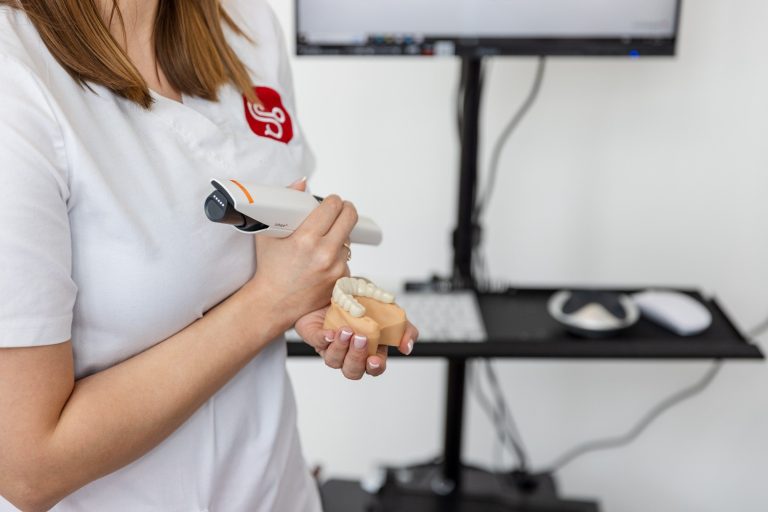Prof. Gil: Poland is a country with a high risk of heart disease. It's time to change that

Men in Poland live 8 years shorter than women. It is necessary to change lifestyle, but also to popularize preventive tests and more effective treatment. We don't have to die prematurely: says prof. Robert Gil, president of the Polish Cardiological Society
Katarzyna Pinkosz, Wprost: Poles die too early due to heart diseases; they still live shorter than Western Europeans. Does the decalogue of the needs of Polish cardiology, prepared by you, have a chance to change this?
Prof. Robert Gil: I must say that times are changing, you need to reorganize your activities to achieve your goals. My decalogue was a kind of extension of the decalogue created by prof. Przemysław Mitkowski. Our Decalogue is still current. The only thing I would do today is to change the center of gravity a bit: perhaps the order of the points could change, but it would be wrong to think that the order of the points of the Decalogue is related to the order of their implementation.
There is no single reason for the excess mortality of Poles: there are many reasons why, especially men in Poland, live shorter lives – because the difference between men and women in Poland is up to 8 years; women's life expectancy is almost in line with the European average. So why can women live longer and men can't?
Exactly: why such an excess of male mortality?
I don't have a ready answer to this question today. Just as we talk about multi-morbidity in Poland, we also have to talk about the multi-causality of increased mortality or even excess mortality in men.
Prevention is obvious: both primary and secondary. In the case of secondary prevention, let's look at the percentage of patients after acute coronary syndromes who participate in the KOS Zawał program: it is less than 40%, although we know that participation in the program means life extension and quality improvement. So Poles – for various reasons – do not use the program that is supposed to extend life. This needs to change.
Other weak points include cardiac and neurological rehabilitation, as well as low treatment effectiveness after acute cardiovascular interventions. A small percentage of patients take medications that satisfactorily lower cholesterol levels (and this is an obvious way to extend life). We are not meeting our LDL goals. One of the reasons is restrictions on the use of the most effective drugs, such as PCSK9 inhibitors or inclisiran, in the B.101 program. This is slowly changing, which makes me very happy. The fact is, however, that our system is defective due to the fear of too high treatment costs. That is why we are creating “Polish” standards for the use of modern medicines as part of the program. This was one of the reasons for my election slogan “Polish cardiology, European standards”.
What about primary prevention? I'm embarrassed to admit what he looks like. What the egg absorbs when you are young, it will smell bad in your old age: if a child does not learn what is healthy, what can affect his or her length and quality of life, it is very difficult to teach this to an adult.
It is also worth paying attention to health analyzes of children in order to “catch” children from families with a high cardiological burden, who are most prone to heart attack, stroke and cardiomyopathy. It is also necessary to create a system for treating patients with cardiogenic shock and sudden cardiac arrest. This system does not exist in Poland – we have the worst results in the treatment of cardiogenic shock in Europe. The effectiveness of their treatment has not improved in Poland over the last 8 years. In addition, we must add the “health debt” associated with having had COVID-19, and the possibility of preventive tests being significantly limited for over a year. We can see that now younger and younger patients are also starting to have cardiac problems – the question is whether this is the result of COVID-19 or, among others, the effect of bad habits acquired during the pandemic: little exercise, eating unhealthy food. Let's pay attention to how many people have gained weight during the pandemic.
It's hard to say which of these elements are the most important, you have to think about all of them. A sensible state that wants to have healthy citizens who live long lives must counteract this.
What would you see as the most important priorities today – after several months as president of PTK?
I have taken on many challenges and I am slowly trying to fulfill them. I must say that everything takes longer than I thought, if we are talking about collegial management of Polish cardiology. However, I know that you have to listen to people and convince them that you are right, because only then can changes be accepted.
Many things are slowly being implemented: the pricing of procedures is to be changed; we see the understanding that this is necessary. We also feel good when it comes to reimbursement of medicines and new medical devices. We see many changes and we hope that more will appear – both new drugs for population-based cardiological diseases and for rare diseases. It is important to fully launch and collegial management of the National Cardiovascular Diseases Program. We want to liberalize drug programs. However, we see that a lot is already changing.
The only remaining issue was the skills of cardiologists regarding the ability to analyze magnetic resonance imaging and CT images in cardiology. When it comes to the cardiogenic shock treatment program, working groups have been created, there is hope that in the fall, during the PTK congress, we will be able to announce this program and launch it on a pilot basis to show the National Health Fund and the Ministry of Health that this problem needs to be addressed. My biggest concern is when it comes to genetic counseling. Until recently, centers that deal with genetics did not take cardiology into account at all; mainly focused on oncology and rare diseases. Change is necessary here. I must say that the last few months have been very busy, but with some successes.
Will 2024 also be the year when there will be a lot of talk about pediatric cardiology?
The idea of ”cardiology for generations” is close to my heart, and children's health is also very important. Dr. Maria Miszczak-Knecht, a national consultant in the field of pediatric cardiology, drew my attention to the scarcity of pediatric cardiologists and the limited number of pediatric cardiac surgeons. Not all cardiac surgery procedures are performed in Poland; not only because they cannot be performed, but also parents, stimulated by external entities, often collect money to perform the operation outside Poland. We will try to work together to change the situation also in pediatric cardiology – of course, we are counting on the help of the community of pediatric cardiologists.
DECALOGUE OF POLISH CARDIOLOGY FOR 2023-2025
- Full launch of the National Cardiovascular Disease Program across the country, as well as its transparent and collegial management.
- Making the valuation of cardiology procedures more realistic, especially in interventional cardiology.
- Rapid reimbursement for procedures with proven benefits in improving patient outcomes.
- Creating a fast track for reimbursement of new medical devices and drug technologies that significantly improve the effectiveness of therapy.
- Adopting criteria for inclusion in the National Health Fund Program for the treatment of hypercholesterolemia based on the guidelines of the European Society of Cardiology and combining it with the KOS-zawał program.
- Creation of a system enabling cardiologists to train and acquire competences in performing and independently assessing computed tomography and magnetic resonance imaging tests in the field of the cardiovascular system.
- Creation of the National Program for the Treatment of Patients with Cardiogenic Shock and after Sudden Cardiac Arrest.
- Creation of a genetic diagnostic system for cardiology in Poland.
- Supporting the needs and intensifying the development of pediatric cardiology.
- Improving the functioning of PTK through new structures and democratic statutory changes.





